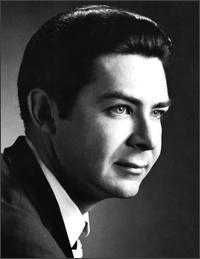b. Nathan Wright Stuckey II, 17 December c.mid-30s, Cass County, Texas, USA (his date of birth has been variously given as 1933, 1934, 1937 or 1938), d. 24 August 1988. After studying for and obtaining a degree in radio and television, he worked as a disc jockey, first on KALT Atlanta, Texas, and then moving to KWKH Shreveport, Louisiana. He began to entertain and between 1958 and 1959, fronting his own band the Cornhuskers, he played the local clubs until his performances won him a spot on KWKH's Louisiana Hayride, which he played from 1962-66. After first recording for Sim, he joined the Paula label and in 1966, "Sweet Thang", which reached number 4, gave him his first US country chart entry. He named his band after the song and during the late 60s, he registered further hits on Paula before moving in 1968 to RCA Records, when he also relocated to Nashville. His Top 20 hits included "Oh Woman", "My Can Do Can't Keep Up With My Want To", "Plastic Saddle", "Joe And Mabel's 12th Street Bar And Grill", "Cut Across Shorty", "Sweet Thang And Cisco" and a duet with Connie Smith of the Sonny James' 1957 country and pop number 1 "Young Love". (Gary Stewart played piano in Stuckey's band for some time). He recorded three albums with Connie Smith, including in 1970, an all-gospel album with one track, "If God Is Dead (Who's That Living In My Soul)", making the Billboard charts. During the 60s, he also had success as a songwriter with his songs becoming hits for other artists, such as "Waitin' In Your Welfare Line" (a country number 1 for Buck Owens) and "Pop A Top" (a country number 3 for Jim Ed Brown). His name continued to appear in the charts in the 70s and he had major success with "She Wakes Me With A Kiss Every Morning" and "I Used It All On You". In 1976, he moved to MCA Records but by the end of the decade his career had begun to fade and his name had disappeared from the charts, the last entry being "The Days Of Sand And Shovels" in 1978. He continued to tour but could not maintain his earlier successes and was reduced to playing minor venues. In later years he worked as a jingle singer and did commercials. In 1985, he made a final trip to Europe, when he appeared in London at the Wembley Festival. He formed his own publishing company in Nashville but died of lung cancer in 1988.
Source: http://www.theiceberg.com/artist/11740/nat_stuckey.html
